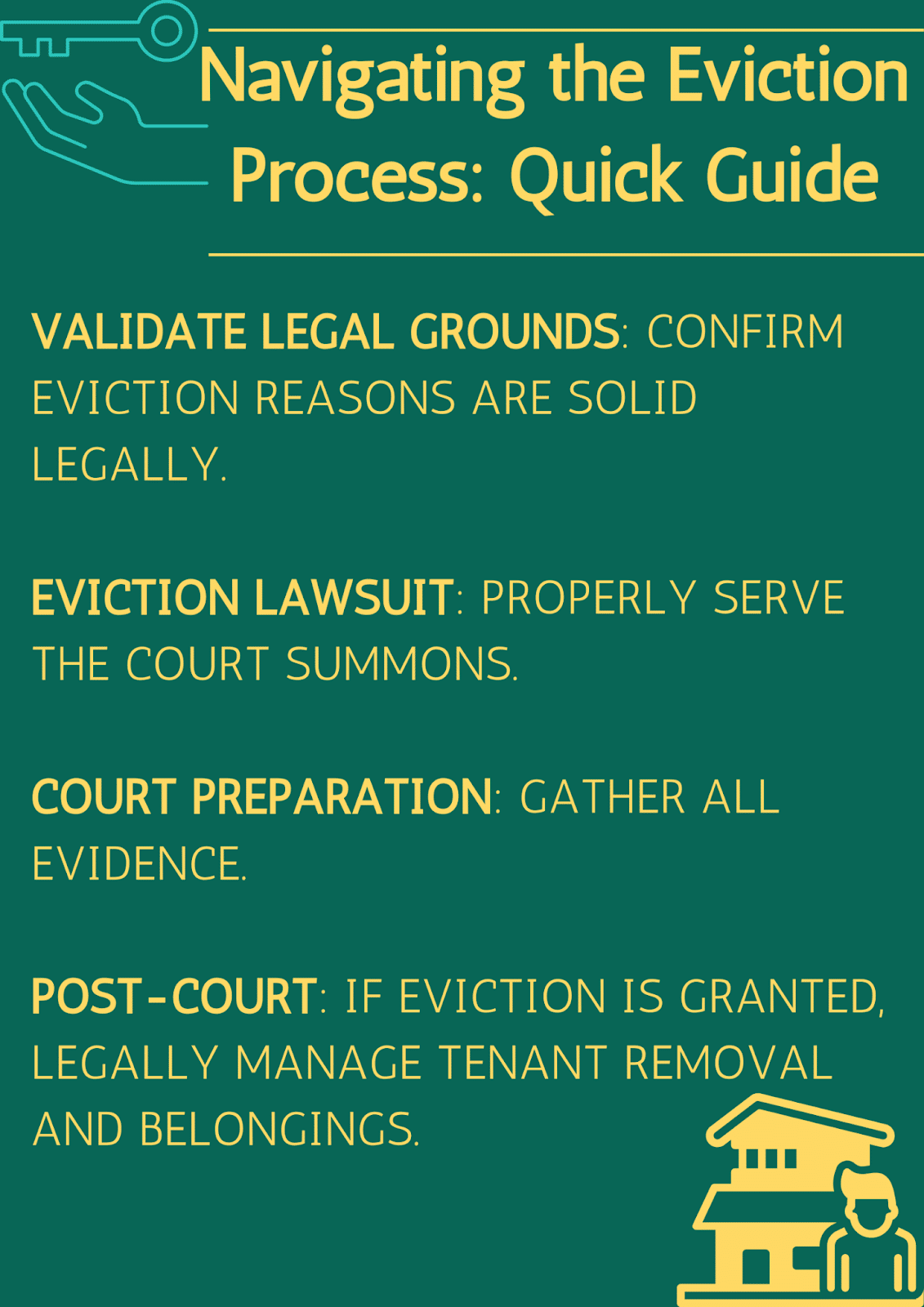As a landlord, one of the challenging situations you may face is having to evict a tenant. The eviction process can be complex, emotionally draining, and legally precarious if not handled correctly. Understanding the nuances of eviction notices, the legal requirements, and the potential consequences is crucial to protecting your interests as a property owner.
This comprehensive guide aims to equip you with the knowledge to navigate the eviction process smoothly, from crafting and serving legally compliant notices to managing the aftermath effectively.
Understanding Eviction Notices: Types and Purposes
Eviction notices are not a one-size-fits-all solution. Depending on the circumstances, landlords must issue the appropriate type of notice to legally initiate the eviction process.
Here are the three main types of eviction notices and their purposes:
- Pay or Quit Notice: Served when the tenant fails to pay rent on time, giving them a short period (usually 3-5 days) to pay or vacate.
- Unconditional Quit Notice: Used when a tenant violates a non-rent lease term, requiring them to vacate by a specific date with no option to remedy.
- Notice to Comply or Quit: Issued for violable lease breaches, allowing the tenant to correct the issue within a set timeframe or face eviction.
Between 2000 and 2016, there was approximately one eviction filing for every 17 renter households in the United States, highlighting the prevalence of eviction actions in the renting market. It’s crucial to issue the correct notice type to protect the eviction process’s legal integrity and safeguard landlords’ interests.
Pre-Eviction Considerations: Things to Keep in Mind
Evicting tenants without notice presents legal complexities and disputes that can be daunting for inexperienced landlords. Property management companies offer expertise in handling the entire eviction process fairly, legally, and with minimal stress. Their experience and resources streamline evictions for landlords, but carefully evaluating the situation is crucial.
- Evaluating Violations: Assess the severity of the tenant’s violation and consider if communication or mediation could resolve the issue before pursuing eviction.
- Legal Compliance: Understand and strictly follow state and local eviction laws, including notice requirements, to avoid invalidating the process and potential legal liabilities.
- Documentation and Professionalism: Maintain detailed documentation of tenant issues and handle the eviction process professionally and compassionately to minimize conflicts and protect your reputation.
Navigating the Eviction Process: A Step-by-Step Guide
If the tenant fails to comply with the eviction notice, establish valid legal grounds for eviction per state laws. File an eviction lawsuit and properly serve the court summons on the tenant. Attend the court hearing with evidence like the lease, notices, and unpaid rent records.
In San Francisco, eviction notices for causes like ‘Nuisances’ rose 25% from 2021 to 2022. If the court rules for eviction, receive a writ authorizing law enforcement to remove the tenant if they don’t leave voluntarily. Properly handle the evicted tenant’s belongings as per state laws.
Consequences of Non-Compliance: Risks Landlords Face
Non-compliance with eviction laws and procedures can have severe consequences for landlords. Here are some potential risks to consider:

- Legal and Financial Repercussions: Potential lawsuits from tenants, legal fees, damages, and penalties imposed by housing authorities for violations.
- Damage to Reputation: Mishandling evictions can severely tarnish a landlord’s reputation, making it difficult to attract and retain future tenants.
- Extended Disputes and Emotional Toll: Improper procedures can lead to prolonged conflicts with tenants, significant loss of rental income, and emotional stress for both parties.
Ensuring compliance with eviction laws and procedures can protect landlords from these risks and help maintain a positive reputation.
FAQs
How can one ensure the eviction notice is legally compliant?
Adhere to state-specific laws and consider consulting a landlord-tenant attorney or local housing authorities to review your eviction notice before serving it. This ensures it meets all legal requirements.
What should one do if a tenant refuses to leave after receiving an eviction notice?
If a tenant fails to vacate by the date specified, you’ll need to proceed with filing for a formal eviction through the appropriate court in your jurisdiction. Be prepared to present evidence like the served notice, lease agreement, and other relevant documentation during the court hearing.
Published by: Nelly Chavez









